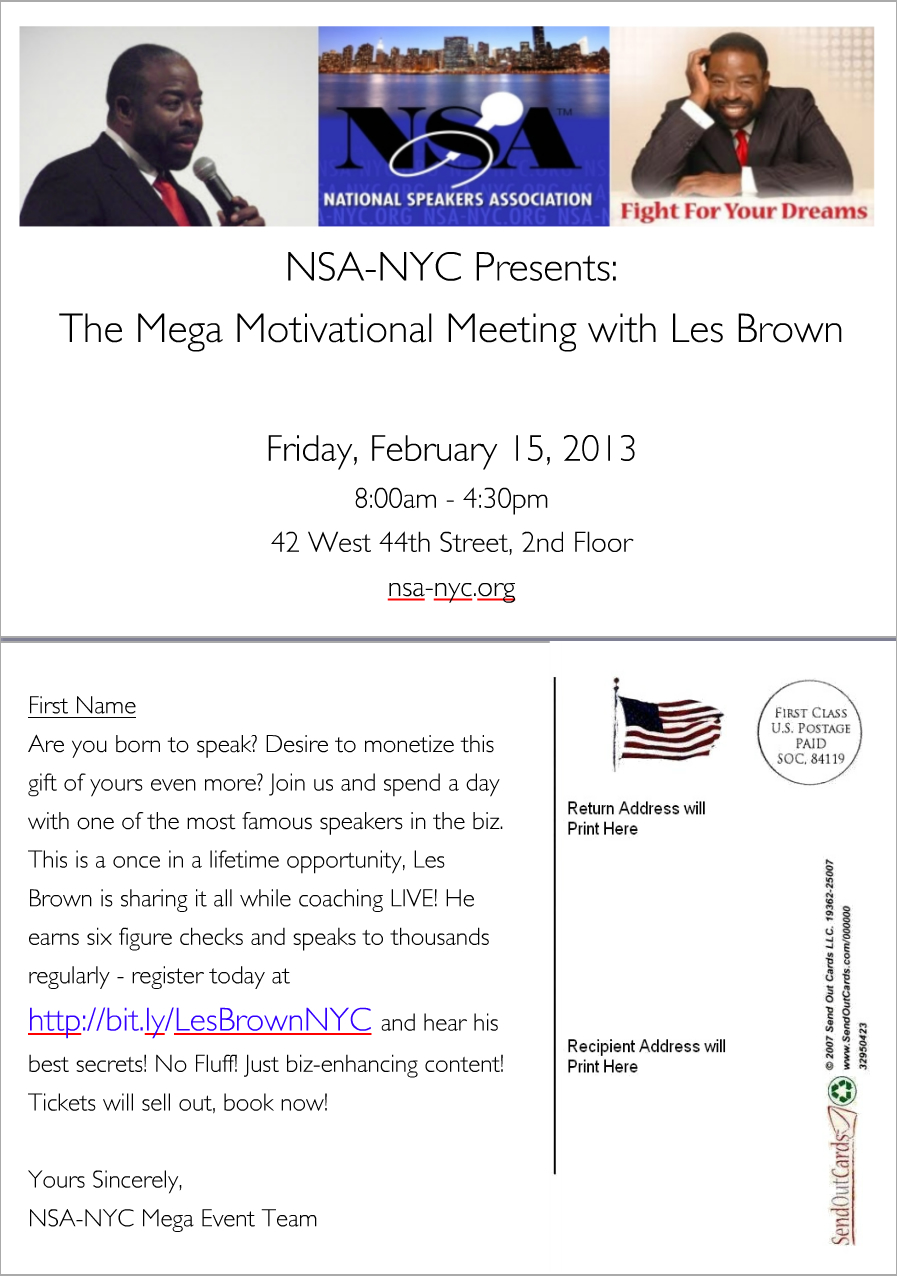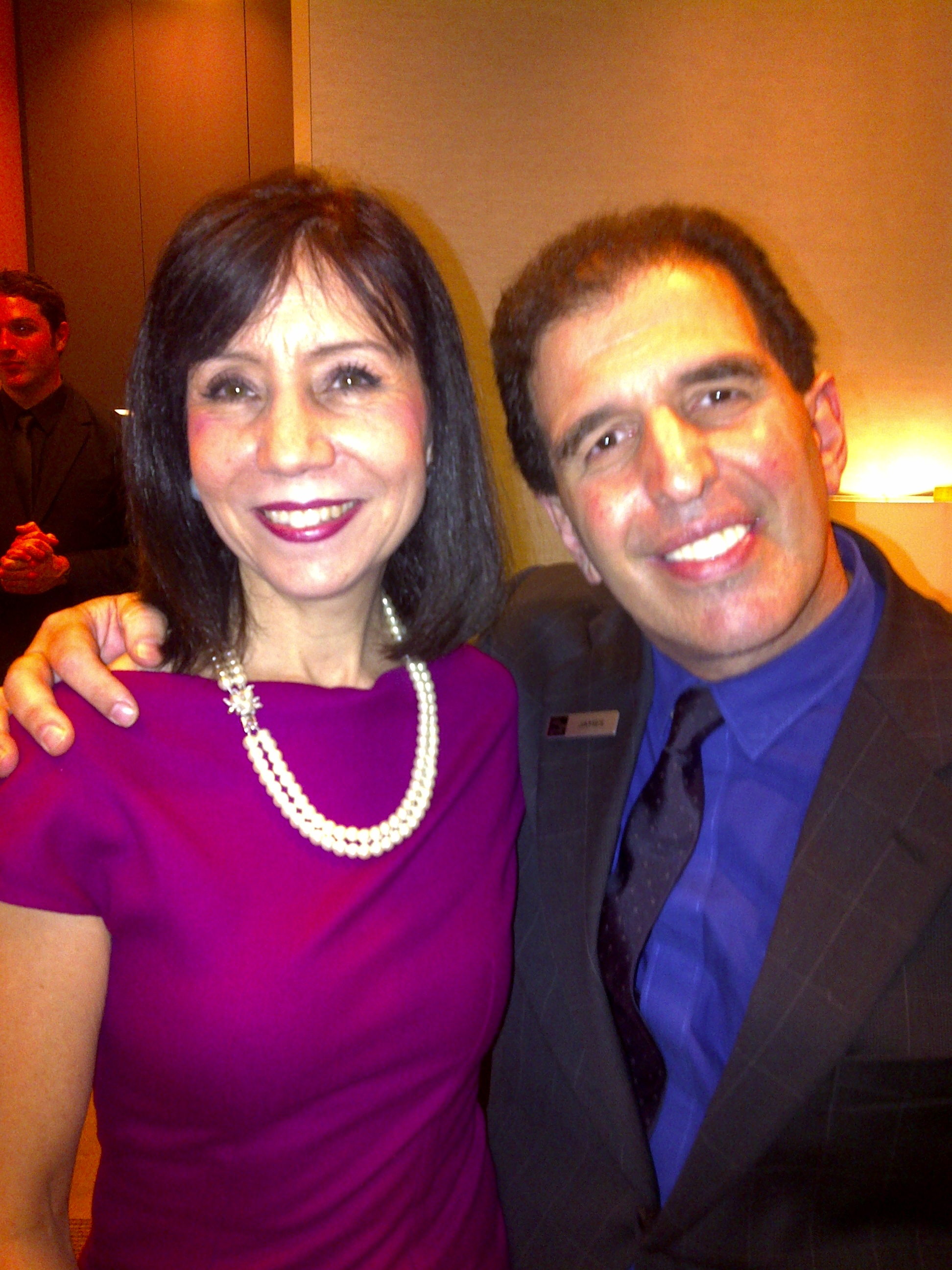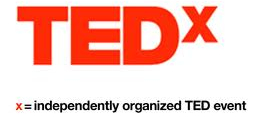 I read an interesting story written by Deborah Grayson Riegel, who was giving a presentation at the Bronx zoo. In addition to her human audience, there were 20 monkeys outside with their faces pressed against the window, watching her presentation. Each time she advanced her PowerPoint slide, the monkeys would bang their fists against the window. Eventually, she had to let go of her PowerPoint presentation, and stopped changing the slides altogether.
Most of us are not going to be speaking at the zoo, but we will have our own monkeys to deal with - the usual cast of characters known as a difficult audience - hecklers, people causing distractions, zoning out, and generally interrupting your presentation. It's important to be flexible and work with your audience.
I read an interesting story written by Deborah Grayson Riegel, who was giving a presentation at the Bronx zoo. In addition to her human audience, there were 20 monkeys outside with their faces pressed against the window, watching her presentation. Each time she advanced her PowerPoint slide, the monkeys would bang their fists against the window. Eventually, she had to let go of her PowerPoint presentation, and stopped changing the slides altogether.
Most of us are not going to be speaking at the zoo, but we will have our own monkeys to deal with - the usual cast of characters known as a difficult audience - hecklers, people causing distractions, zoning out, and generally interrupting your presentation. It's important to be flexible and work with your audience.
Speaking of monkeys... someone recently threw a monkey wrench into my half day presentation training workshop, which was scheduled from 1:00 - 4:00pm. We were told that four of the participants had to leave by 2:30. The program was designed to build speaking skills so the speakers would be prepared to give their final presentations at the end of the workshop. We had to do a quick redesign on the spot - in 5 minutes. My partner and I huddled and came up with a plan. The goal was to give each participant the opportunity to present, leave on time, and still gain enough learning to succeed in their next presentation. It worked.
In public speaking, as in life, we always need a backup plan. Deborah had no choice - the monkeys forced her to stop using PowerPoint. Your audience may be more subtle, but good public speakers pick up the nuances and can change in a moment to better serve their listeners. Technology will fail. And an audience can quickly tune out. We need to be able to go where the current is taking us. That's the mark of a professional speaker.

 Vernice Armour
Vernice Armour A good friend sent me an email about a possible speaking engagement. I contacted the meeting planner to tell her about my background and talk about
A good friend sent me an email about a possible speaking engagement. I contacted the meeting planner to tell her about my background and talk about  I recently read an article by Dylan Kendall entitled, "
I recently read an article by Dylan Kendall entitled, " "Ask any businessman or woman and they will tell you the same thing – confidence is a vital ingredient in the recipe for success. In other words, if you want to be really good at anything - no matter what walk of life you are involved in - you need to have belief in yourself and your abilities."
"Ask any businessman or woman and they will tell you the same thing – confidence is a vital ingredient in the recipe for success. In other words, if you want to be really good at anything - no matter what walk of life you are involved in - you need to have belief in yourself and your abilities."
 Professional speakers who are satisfied with the status quo will surely find their audience slipping away. Just like the car replaced the horse and buggy, dynamic, interactive presentations are replacing the talking head. Today, public speakers have to play a bigger game in order to give a
Professional speakers who are satisfied with the status quo will surely find their audience slipping away. Just like the car replaced the horse and buggy, dynamic, interactive presentations are replacing the talking head. Today, public speakers have to play a bigger game in order to give a 






 It's 8:15 p.m. on a Thursday night. I'm at home in front of my computer. The phone rings. I say hello twice before I get an answer. This is always a telltale clue that it's a telemarketer calling. "May I speak to Diane DiResta?," she asks. "Speaking," I reply. She begins to talk about bank security and identifies the bank she is representing. I have an account there so I listen. She continues reading her script about completing a survey. I never participate in surveys but because it's my bank I continue to listen. But she continues reading and I don't know where this is going. Finally, in an annoyed tone, I said, "STOP! You're reading. What is it that you want to know?" She responded by saying, "Have a horrible day and hung up. Okay, it wasn't my finest hour. Maybe I could have said that more sweetly. But I don't like my time wasted and these uninvited calls are an intrusion in my personal life. The point of the call is to get information not to practice reading out loud. Cut to the chase!
Marketers who create these scripts have no understanding of
It's 8:15 p.m. on a Thursday night. I'm at home in front of my computer. The phone rings. I say hello twice before I get an answer. This is always a telltale clue that it's a telemarketer calling. "May I speak to Diane DiResta?," she asks. "Speaking," I reply. She begins to talk about bank security and identifies the bank she is representing. I have an account there so I listen. She continues reading her script about completing a survey. I never participate in surveys but because it's my bank I continue to listen. But she continues reading and I don't know where this is going. Finally, in an annoyed tone, I said, "STOP! You're reading. What is it that you want to know?" She responded by saying, "Have a horrible day and hung up. Okay, it wasn't my finest hour. Maybe I could have said that more sweetly. But I don't like my time wasted and these uninvited calls are an intrusion in my personal life. The point of the call is to get information not to practice reading out loud. Cut to the chase!
Marketers who create these scripts have no understanding of  Words are dying.
Words are dying. Resolve to delete three deadly words from your vocabulary this year. We make resolutions on January 1st and then we go back to our usual habits in less than a month. But you can't afford to let your communication and presentation skills slide. Why? It's a new game. It's tougher, more competitive, and harder than ever to be heard above the noise.
Your speech can undermine your success in an interview, a sales presentation, or a promotion opportunity. And it can sabotage your leadership. Jargon, non-words, and slang will not serve you.
Resolve to delete three deadly words from your vocabulary this year. We make resolutions on January 1st and then we go back to our usual habits in less than a month. But you can't afford to let your communication and presentation skills slide. Why? It's a new game. It's tougher, more competitive, and harder than ever to be heard above the noise.
Your speech can undermine your success in an interview, a sales presentation, or a promotion opportunity. And it can sabotage your leadership. Jargon, non-words, and slang will not serve you. New York, NY (Dec 12, 2012) -- Diane DiResta, CEO of DiResta Communications and author of
New York, NY (Dec 12, 2012) -- Diane DiResta, CEO of DiResta Communications and author of  Back in September, I wrote about
Back in September, I wrote about  TED.com
TED.com  When I first started out in my speaking business, I was hired by American Management Association to give public seminars in public speaking and presentation skills.
One day, the program director sent around a memo stating that all AMA presenters were expected to arrive early to the class. It was not acceptable to show up at 9:00 a.m. What? Who would do that? I always arrived an hour early.
When I first started out in my speaking business, I was hired by American Management Association to give public seminars in public speaking and presentation skills.
One day, the program director sent around a memo stating that all AMA presenters were expected to arrive early to the class. It was not acceptable to show up at 9:00 a.m. What? Who would do that? I always arrived an hour early.